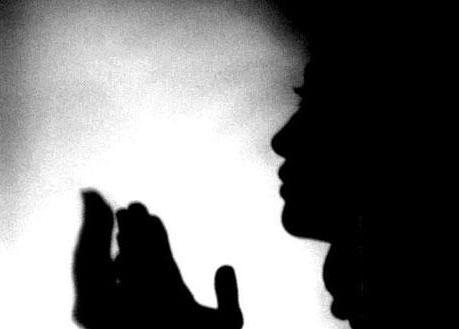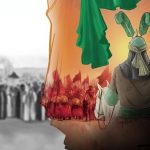
- Opinion on Non-Permissibility of Tawassul
In the opinion of Taqi al-Din Ibn Taymiyyah and later Hanbali scholars tawassul to the person of the Prophet (PBUH) himself is not permissible. Tawassul has three concepts, of which two are deemed correct, and according to Ibn Taymiyyah, whoever rejects these two concepts of tawassul is either an infidel or an apostate.
1) Tawassul to the Prophet (PBUH) to reach God is indicative of faith and love for the Prophet (PBUH). For example, when it is said Allahumma asaluka bi-Nabiyyika Muhammad (O Allah! I beseech you for the sake of your Prophet, Muhammad (PBUH)), it means I seek from you on the basis of the faith and love which I have for Your Prophet.
The Ayah “and seek an approach unto Him”, is a means of approaching Allah by obedience to Him and His Messenger, as it is said Whoever obeys the Prophet has indeed obeyed Allah.
This concept of tawassul is permissible in the opinion of all ‘ulama’. Ibn Taymiyyah has considered it a pious act and has supported his views by citing reports from certain companions of the Prophets, the first generation of Muslims (tabi’in) and jurists such as Ahmad Ibn Hanbal.
2) The concept of tawassul as supplication or intercession (shafa’at) of the Prophet (PBUH), like the supplication of the second caliph, which reads: “O Allah! Whenever drought afflicted us we made tawassul to you through our Prophet (tawassalna ilayka bi-Nabiyyina), and now we make tawassul to you through the uncle of our Prophet, Send down rain for us.”
3) The concept of tawassul as making an oath or invoking Allah by the right of the Prophet (saws). According to Ibn Taymiyyah this form of tawassul was neither done during the lifetime of the Prophet nor after him by his companions. In this regard contemporary scholars opposed to tawassul have quoted Abu Hanifah as saying: Do not say asaluka bi-haqqi anbiya’ika (I invoke you by the right of Your Prophets).
Rejection of Ibn Taymiyyah’s Opinion
- The claim that the companions of the Prophet (PBUH) never supplicated in this manner is the understanding and deduction of Ibn Taymiyyah. How do we know that when the second caliph says “we make tawassul to you through our Prophet” does not mean “for the right of our Prophet (bi-haqqi nabiyyina)”, or is not addressed to the Prophet himself? Most Sunni ‘ulama’ have given the latter meaning and from the wording of the sentence itself the Prophet is being called upon.
- Suppose none of the companions had made tawassul by the right of any of the divine Prophets, it does not mean tawassul is Haram even if some of the companions were to explicitly prohibit such an act. The opinion of the companions of the Prophet (PBUH) is not binding on the Muslim ummah, except perhaps for a few jurisprudents, unless it is related from Prophet Muhammad (PBUH) himself.
Justification of the Salafiyyah on Non-Permissibility of Tawassul
Ibn Taymiyyah in Qa’idah Jalilah, Ibn ‘Abd al-Wahhab in Kashf al-Shubahat and Muhammad Rashid Rida in Tafsir al-Manar, opine that although during the life of Prophet Muhammad (PBUH), his companions would address him for their needs, after his death they never approached his tomb for their needs. They even forbade those who intended to supplicate beside the Prophet’s (PBUH) tomb.
Critique
It is interesting to note that a review and analysis of these opinions brings out different historical facts. First of all, the predecessors, whether the companions or the first and second generation of Muslims, never denied tawassul to the Prophet (PBUH), either during his lifetime or after his passing away. It has been mentioned in the narrations of the Ahl al-Sunnah even the first created man, Adam, implored Allah for forgiveness through tawassul to Prophet Muhammad (PBUH) with the words: “O Allah! For the sake of Muhammad (PBUH) I beseech you to forgive my faults.”
Secondly, prominent Sunni scholars such as Bayhaqi and Ibn Abi Shaybah as well as Ahmad bin Zayni Dahlan in his Khulasah al-Kalam, have cited a sahih (authentic) hadith, that during the caliphate of ‘Umar ibn Khattab when a severe famine occurred, Bilal bin Harth approached the Prophet’s (PBUH) tomb and said: “O Messenger of Allah, pray to God to send rains for your ummah, since we are all facing annihilation.” The Prophet then appeared in Bilal’s dream and gave him the tidings of rains.
Similarly during the caliphate of ‘Uthman ibn ‘Affan, a needy person approached the Caliph and told him of his needs. ‘Uthman asked him to make wudu, offer prayer in the mosque and then supplicate in the following manner O Lord! Through the wasilah of our Prophet Muhammad (PBUH), the Messenger of Mercy, I turn my face to you. O Muhammad (PBUH)! Through your wasilah I am facing Your Lord and I request you to grant me my wish. The person attained his goal.
Tamassuk in the Opinion of Abu Hanifah
Ibn Taymiyyah says that taking an oath or invoking by virtue of the creatures is haram according to the creed (madhhab) of Abu Hanifah. Abu Hanifah, the founder of the Hanafi sect, also opines that istidlal (rational proof) and tamassuk (bond, holding fast) are matters of doubt or anxiety because of two aspects.
Abu Yusuf quoting his teacher Abu Hanifah says “It is not right for someone to call upon Allah through any other means than Allah. He (Abu Hanifah) was averse to saying bi-haqqi fulan (by the right of so and so)”.
Critique
First, Abu Hanifah has approached this issue with aversion and a purely personal opinion, as is clear from the inclusion of istidlal and tamassuk in Bab al-Karahah of Abu al-Hassan Qaduri’s Sharh Karkhi. Abu Yusuf quoting his teacher Abu Hanifah says:
It is not right for someone to call upon God through any other means than God. He was averse to saying for the sake of so and so.
Secondly, a closer look at Abu Hanifah’s reasoning reveals that he himself has tried to resort to rational argumentation in this regard when he says: “Since the creatures have no rights on the Creator.”
However, Abu Hanifah’s analogy falls short of clear proofs, and does not mean the total negation of any right, since God Himself has considered the right of the Prophets and that of the righteous believers as binding upon Him, as is clear from the following Ayah of the Holy Qur’an.
Ultimately we deliver Our Apostles and those who believe, even so it is binding upon us that We deliver the believers. (10:103)
The Hanafis such as Ibn ‘Abidin accept this right, but they say that the creatures have no obligatory right on the Creator. This viewpoint, even if it is considered general, is confined to the followers of Abu Hanifah and cannot be imposed on all schools of Islam.
Source: al-islam.org










